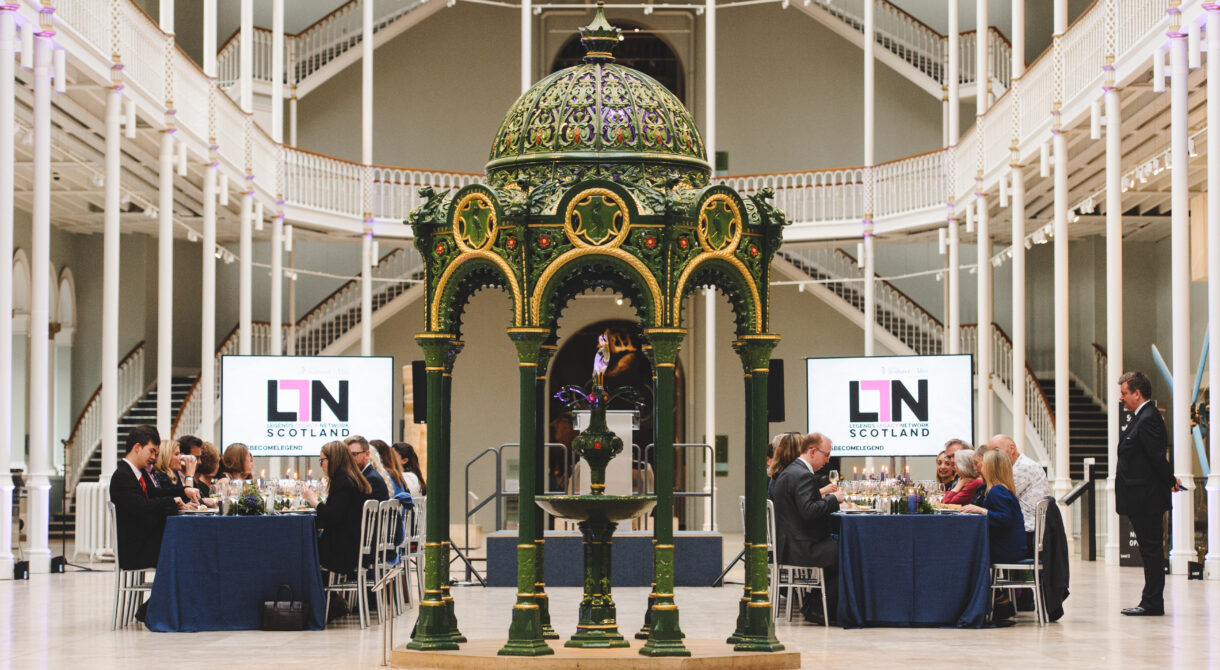Like countless other tourism organisations and convention bureaus across the globe, VisitScotland has had to put a lot of its resources into supporting and guiding its business event clients through extremely difficult times over the past few months.
#scotlandwillwait
“Scotland understands that these are unprecedented times and we have been supporting our clients and lend a hand in whatever way we can,” says Rory Archibald, VisitScotland business development manager – associations & sectors. “We are working as closely as possible with them to make sure if they are postponing events, we can fit them into future years, or, if they are cancelling, that they still choose to come back to Scotland in the future.”
The message that Scotland ‘will wait’ for clients to return or reconsider it as a destination for business has been amplified on social media via the #scotlandwillwait hashtag. “We realize the industry is going to take a long time to recover from this. Even when the hotels and conference centres are back up and running and people are allowed to meet, we’ll have a long road to get down before we get to full recovery,” says Archibald.
But, thanks to the work VisitScotland has already been doing to connect delegates and associations with Scottish expertise, there is optimism for the future. “We’re putting all the mechanisms in place now, so that when the time is right, we’ve already got relationships lined-up and ready to go so it’s a very easy conversation to have. As soon as associations are ready to come back or consider Scotland, we can make their event the very best it can be and organisers can kick start their conference planning with a bang,” he says.
Knowledge economy
A lot of these relationships were already established as part of VisitScotland’s business event team’s successful Legends campaign, which culminated in October last year. The two-year long initiative highlighted Scotland’s key sectors, which include technology, data science, creative industries, food & drink, marine, publishing, sensors & imaging and life sciences.
One of the lasting outcomes of the campaign is the Legends Legacy Network – a group of 15 research and innovation experts from across Scotland. Together, they represent internationally renowned institutions like The Data Lab, The Scottish Association for Marine Science, The Roslin Institute and Creative Scotland. Through regular meetings, these experts help to create new networks, encourage investment, look at new perspectives, pool international talent and showcase Scotland as a destination for business events.
“We can pick up the phone at any time to the CEOs of these innovation centres and professors at our research institutes – we even have a direct line into government,” says Archibald. “This means that, if an association wants to engage with one of our local knowledge centres, then we’re in a position to support the introductions and the ideas along with our different convention bureaus.”
Creating legacies
Plans to release a follow-up campaign have been put on hold for now, but Archibald gives a flavour of what’s to come: “It’s less about the cultural aspects and more about the ambitions of Scotland. It’s not just about marketing our castles and landscapes, it’s about informing and educating the associations market on what opportunities are available and how we can create the legacy aspect in collaboration with our innovation centres, research institutes and universities.”
VisitScotland will work with the Scottish government on the campaign, to ensure it targets association events that align with Scotland’s National Performance Framework, which provides context to the kind of country Scotland wants to be. Being sustainable is a big part of this mission, and is something Archibald is personally passionate about: “Within our industry there’s a lot of talk about sustainability, but we don’t actually walk the walk when it comes to implementing it.”
This article was written by Boardroom editor Chantelle Dietz. The right to use it, in parts or in full, has to be granted by the Publisher.
“Here in Scotland we work with our partners to encourage collaboration and knowledge sharing, to find out what the barriers to sustainability are with our industry and what ideas can we collectively come up with to ensure we are being as sustainably as possible.”
One silver lining to come out of the Coronavirus crisis, says Rory, is that the industry has an opportunity to really start from scratch and think about how it operates sustainably. Just because we’ve always done something a certain way doesn’t mean it’s right. “This is our opportunity to think differently for future events. I’m not just talking about token gestures, I’m talking about ideas that will last and have an impact for some time to come,” he says.
